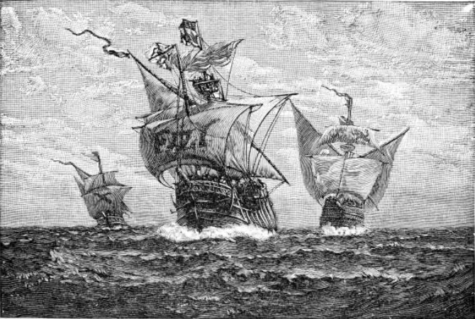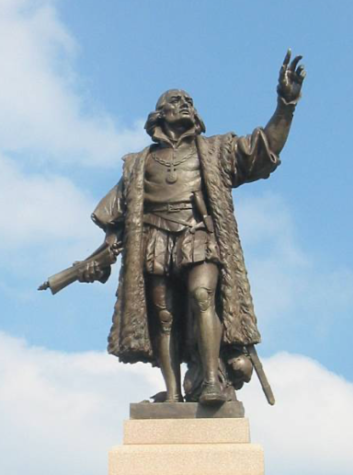
Amy Parr | Head Editor
October 15, 2021
“In 1492, Columbus sailed the ocean blue.”
This classic poem evokes serene waters and crisp linen sails, romanticizing the sentiment surrounding Christopher Columbus’s fateful journey across the Atlantic those many years ago. Sent by King Ferdinand and Queen Isabella of Spain to find trading routes to Asia, Italian explorer—or barbaric imperialist, as many contemporary historians refer to him—Christopher Colombus voyaged for 36 days before falsely proclaiming that he had reached India, when in reality he had landed in the Bahamas. Apparently, topographical proficiency was not a requirement for sailors in the fifteenth century.
Regardless of his 9000 mile blunder, Columbus’ claim to fame for “discovering America” erases the rich Indigenous history that most Americans are largely unaware of, primarily due to the decimation in population after the arrival of Columbus and other explorers. Columbus’ arrival in the “New World” resulted in the death of 55 million indigenous people—roughly 90% of the population at the time.

“We shouldn’t celebrate a man who brought about the destruction of the Indigenous population,” senior Izzy Duzman said. “It’s very concerning that we still have a national holiday celebrating a rapist and a murderer.”
Not only did Columbus end the lives of the Indigenous, he did so in the most inhumane ways possible. His methods included feeding them to hunting dogs, cutting off body parts, and selling nine-year-olds into sex slavery. Recent controversies about Confederate statues in the South indicate that the nation is starting to recognize that being complicit in the celebration of evil historical figures in the name of patriotism is unacceptable.
“In school, we usually focus on Columbus and his bad treatment of the natives, and not much emphasis is placed on the natives themselves,” senior Evan Lipofsky said. “We should learn more about specific Indigenous cultures because they’re dying out, and children should be taught culture instead of glorified versions of how the Americas were founded.”
In 2021, over 500 years after Columbus, the current population of Native Americans is 6.79 million, roughly 11% of the population prior to the arrival of Columbus. Even without accounting for exponential population growth in recent centuries, this significant change has brought devastation to tribes all across the country. While an Indigenous Peoples’ Day does exist, celebrated on October 11, a seemingly performative holiday is not enough to make up for the atrocities committed against Indigenous populations.
“There are lots of policies that help Native tribes, but the fact that we still celebrate Columbus Day when we know about what he did is hypocritical,” Lipofsky said.
This raises an increasingly important question in the wake of cancel culture; should we judge historical figures based on current standards of morality? There is no easy answer. Thomas Jefferson was a slaveholder, but he drafted the Declaration of Independence. Walt Disney used antisemitism in some early cartoons, but created the most iconic franchise in the world.
Christopher Columbus fueled a mass genocide against Native Americans, but….discovered an already inhabited continent? For many historical figures, immorality can be concealed by great deeds, leaving a grey area in regards to commemoration. For Christopher Columbus, the answer is clear; there is no reason to celebrate a cruel and vile man whose contributions to the world at large are minimal at best.

I agree with “Not only did Columbus end the lives of the Indigenous, he did so in the most inhumane ways possible.” Because he was very mean.